SCARS Institute West Africa Project in Ghana – August 2024
With the help of GISF CyberLaw Academy Series for Criminal Justice Professionals at Ghana UENR
Primary Category: Advocacy and Policy
Authors:
• SCARS Editorial Team – Society of Citizens Against Relationship Scams Inc.
• Portions from Modern Ghana
About This Article
The SCARS Institute’s West Africa Project, in collaboration with the Ghana Internet Safety Foundation (GISF), hosted a two-day CyberLaw Academy event in Sunyani to strengthen cybersecurity and justice for victims of cybercrime, including Child Sexual Abuse Material (CSAM).
The event brought together law enforcement, state prosecutors, and industry leaders to discuss strategies for combating cybercrime and equipping professionals with the skills needed for effective prosecution.
The event highlighted the importance of digital evidence and collaborative efforts, empowering participants with knowledge on applying Ghana’s Cybersecurity and Electronic Transactions Acts in court. The event emphasized justice for victims and building a resilient digital future in Ghana.
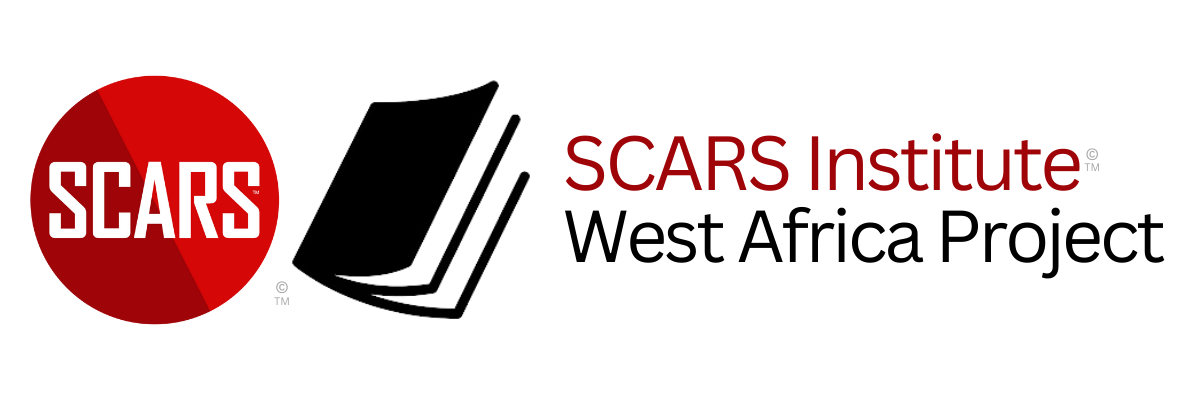
SCARS Institute West Africa Project Working With Ghana Policce & Criminal Justice Professionals With The Help Of The Ghana Internet Safety Foundation (GISF)
The Ghana Internet Safety Foundation (GISF) held a two-day event at the University of Environment and Natural Resources (UENR) in Sunyani, highlighting the urgent need for enhanced cybersecurity measures and justice for victims of cybercrime and Child Sexual Abuse Material (CSAM) in Ghana.
The event, which took place at the RECESS Auditorium, brought together CID detectives, state prosecutors from the Ghana Police, and other key stakeholders to discuss strategies for a safer online environment. The centerpiece of the event was the CyberLaw Academy, an initiative designed by GISF to equip law enforcement officers and state prosecutors with essential skills to combat cybercrime and ensure justice for victims, especially those affected by CSAM.
Industry leaders and experts, such as SCARS Institute Dr. Tim McGuinness shared insights on cybercrime and victims, and others on the role Artificial Intelligence (AI) can play in prosecuting cybercrime and CSAM cases. The overarching message was clear: justice for victims must be prioritized, and the academy aims to empower professionals tasked with delivering that justice.
The event, held from August 14-15, featured discussions and hands-on workshops focusing on the theme “Harnessing AI for Effective Prosecution of Cybercrime and CSAM Cases in Ghana.” The sessions underscored the importance of collaboration and innovation in addressing cyber threats and emphasized that the prosecution of such cases must lead to justice for victims.
A significant highlight of the event was the presentation by Her Ladyship, Justice Afia Serwaa Asare Botwe, Justice of the Appeal Court and Judiciary Representative on the Joint Cybersecurity Committee. She commended GISF for hosting the event in Sunyani, noting that cybercrime affects everyone, regardless of their location. She urged future initiatives to reach investigators and law enforcement officers across the country, not just in major cities.
Justice Asare Botwe also emphasized the need to rethink the concept of evidence, highlighting the shift from paper-based documentation to digital and electronic evidence in courtrooms. She called for a broader understanding of what constitutes admissible evidence in cybercrime cases.
Gabriel Ofori Appiah, Director of Operations and Outreach at GISF, stood in for GISF Founder and President, Emmanuel Adinkra, expressing gratitude to the event’s participants, speakers, and partners. Special acknowledgments were made to key partners, including the Ghana Police, Digital Aid International, SCARS Institute™, the Mott Foundation, and the West Africa Civil Society Institute (WACSI).
Participants were treated to advanced presentations and panel discussions, with a focus on the practical challenges of applying the correct cyber laws in court. One of the key challenges, according to facilitators, is identifying the right laws that apply to specific cybercrime cases. Attendees were also trained on how to handle cybercrime cases and draft charge sheets, with particular emphasis on Ghana’s Cybersecurity Act and the Electronic Transactions Act.
The academy concluded on a high note, with participants acknowledging the value of collaboration and the importance of building strategic relationships in the fight against cybercrime. They left better equipped to handle cybercrime cases, particularly with the understanding that judges should be referred to Section 7 of the Electronic Transactions Act when dealing with digital and electronic evidence.
The GISF event was lauded as a testament to the power of collaboration and a major step forward in the effort to build a resilient and secure digital future in Ghana.
Please Rate This Article
Please Leave Us Your Comment
Also, tell us of any topics we might have missed.
Leave a Reply
Thank you for your comment. You may receive an email to follow up. We never share your data with marketers.
-/ 30 /-
What do you think about this?
Please share your thoughts in a comment above!
-/ 30 /-
What do you think about this?
Please share your thoughts in a comment above!
ARTICLE RATING
TABLE OF CONTENTS
CATEGORIES
MOST POPULAR COMMENTED ARTICLES
POPULAR ARTICLES
U.S. & Canada Suicide Lifeline 988
![NavyLogo@4x-81[1]](https://scamsnow.com/wp-content/uploads/2025/04/NavyLogo@4x-811.png)
ARTICLE META
WHAT PEOPLE ARE TALKING ABOUT LATEST SITE COMMENTS
See Comments for this Article at the Bottom of the Page
on Arts and Crafts Can Significantly Aid in Recovery for Scam Victims – 2025: “I did not realize that things I like doing very much—knitting or sudoku—were so helpful in my recovery process. The…” Jul 14, 11:28
on Projection And Scam Victims: “The moment I realized I had a financial loss due to a scam I realized that I felt shame, guilt,…” Jul 13, 19:12
on Japanese Legend of Tears – When There Are No Words – 2025: “After discovering the fraud, the pain was enormous. I shed oceans of tears, but I always tried to do it…” Jul 13, 10:50
on The SCARS Institute Scam Victim Recovery Timeline – 2025: “Wow. I umm experienced some of the later curves. I have been bouncing back and forth between asking myself why…” Jul 11, 00:01
on Transference And Emotional Danger After The Scam – 2024: “Thank you for the kind but firm reminder that the person in the stolen profile photo has their own life.…” Jul 9, 01:26
on ‘Mental Defeat’ – The Unique Condition Of Giving Up – 2024: “Thank you for another great article. I can see from this article that mental defeat would be debilitating to a…” Jul 9, 00:49
on Trust: Romance Scams Betrayal And Scam Victims – 2024: “This provided valuable insight that I can identify with” Jul 8, 16:44
on A Scam Victim in Extreme Distress – Stopping the Pain – 2024: “Your trust issues are very understandable. We are very sorry this happened to you. We suggest that you contact an…” Jul 8, 14:42
on A Scam Victim in Extreme Distress – Stopping the Pain – 2024: “My online counselors advised me to check myself in. I went to the hospital because I was suicidal. After I…” Jul 8, 13:44
on Scam Victim Catastrophizing Making Recovery Difficult 2024: “Excellent article on catastrophizing. I can understand how this could take a person down a rabbit warren of never ending…” Jul 8, 12:12
on The Self-Pity Trap & How To Overcome It – 2023 – [UPDATED 2025]: “I am not in the habit of feeling sorry for myself. After the deception, although it was not easy at…” Jul 8, 11:49
on Pride – A Dual Edged Sword For Scam Victims – 2023 [UPDATD 2024]: “Looking back over my life I have seen how pride has impacted me both positively and negatively. However the negative…” Jul 8, 09:08
on The Self-Pity Trap & How To Overcome It – 2023 – [UPDATED 2025]: “I felt self-pity while the enormity of my financial loss washed over me like a tsunami. The self-pity lasted only…” Jul 7, 18:55
on The Uniqueness Of Scam Victims Or Fraud Victims – 2024: “unfortunately all true. It is highly stressful dealing with the aftermath. I am being sued for the money I borrowed…” Jul 6, 12:50
on Scam Victims & Mental Health Blaming – 2023 [UPDATED 2025]: “For most of my life words have defeated me, made me feel insignificant, unwanted, unneeded. For this reason it is…” Jul 5, 13:36
on Substance Abuse Susceptibility And Scam Victims – 2024: “It is understandable how some would feel that alcohol or substance abuse would be helpful in handling their feelings after…” Jul 1, 20:36
on Scam Victims Use Work To Avoid Healing: “The last 6 years have been the most difficult of my life. The pandemic, having both parents in the hospital…” Jun 29, 18:38
on Entitlement Mentality And How Scam Victims Often Lose Their Path To Recovery – 2024: “Thank you for this discussion of entitlement. I can see from the descriptions listed that I have not felt entitlement.…” Jun 29, 18:22
on Samurai Wisdom and Rituals for Clearing the Mind After Scam Trauma – 2025 – [VIDEOS]: “A great guide on how to move forward in our recovery process with a calm mind, cleansed on an ongoing…” Jun 28, 07:34
Important Information for New Scam Victims
Please visit www.ScamVictimsSupport.org – a SCARS Website for New Scam Victims & Sextortion Victims
SCARS Institute now offers a free recovery program at www.SCARSeducation.org
Please visit www.ScamPsychology.org – to more fully understand the psychological concepts involved in scams and scam victim recovery
If you are looking for local trauma counselors, please visit counseling.AgainstScams.org
If you need to speak with someone now, you can dial 988 or find phone numbers for crisis hotlines all around the world here: www.opencounseling.com/suicide-hotlines
Statement About Victim Blaming
Some of our articles discuss various aspects of victims. This is both about better understanding victims (the science of victimology) and their behaviors and psychology. This helps us to educate victims/survivors about why these crimes happened and not to blame themselves, better develop recovery programs, and help victims avoid scams in the future. At times, this may sound like blaming the victim, but it does not blame scam victims; we are simply explaining the hows and whys of the experience victims have.
These articles, about the Psychology of Scams or Victim Psychology – meaning that all humans have psychological or cognitive characteristics in common that can either be exploited or work against us – help us all to understand the unique challenges victims face before, during, and after scams, fraud, or cybercrimes. These sometimes talk about some of the vulnerabilities the scammers exploit. Victims rarely have control of them or are even aware of them, until something like a scam happens, and then they can learn how their mind works and how to overcome these mechanisms.
Articles like these help victims and others understand these processes and how to help prevent them from being exploited again or to help them recover more easily by understanding their post-scam behaviors. Learn more about the Psychology of Scams at www.ScamPsychology.org
SCARS INSTITUTE RESOURCES:
If You Have Been Victimized By A Scam Or Cybercrime
♦ If you are a victim of scams, go to www.ScamVictimsSupport.org for real knowledge and help
♦ Enroll in SCARS Scam Survivor’s School now at www.SCARSeducation.org
♦ To report criminals, visit https://reporting.AgainstScams.org – we will NEVER give your data to money recovery companies like some do!
♦ Follow us and find our podcasts, webinars, and helpful videos on YouTube: https://www.youtube.com/@RomancescamsNowcom
♦ Learn about the Psychology of Scams at www.ScamPsychology.org
♦ Dig deeper into the reality of scams, fraud, and cybercrime at www.ScamsNOW.com and www.RomanceScamsNOW.com
♦ Scam Survivor’s Stories: www.ScamSurvivorStories.org
♦ For Scam Victim Advocates visit www.ScamVictimsAdvocates.org
♦ See more scammer photos on www.ScammerPhotos.com
You can also find the SCARS Institute on Facebook, Instagram, X, LinkedIn, and TruthSocial
Psychology Disclaimer:
All articles about psychology and the human brain on this website are for information & education only
The information provided in this and other SCARS articles are intended for educational and self-help purposes only and should not be construed as a substitute for professional therapy or counseling.
Note about Mindfulness: Mindfulness practices have the potential to create psychological distress for some individuals. Please consult a mental health professional or experienced meditation instructor for guidance should you encounter difficulties.
While any self-help techniques outlined herein may be beneficial for scam victims seeking to recover from their experience and move towards recovery, it is important to consult with a qualified mental health professional before initiating any course of action. Each individual’s experience and needs are unique, and what works for one person may not be suitable for another.
Additionally, any approach may not be appropriate for individuals with certain pre-existing mental health conditions or trauma histories. It is advisable to seek guidance from a licensed therapist or counselor who can provide personalized support, guidance, and treatment tailored to your specific needs.
If you are experiencing significant distress or emotional difficulties related to a scam or other traumatic event, please consult your doctor or mental health provider for appropriate care and support.
Also read our SCARS Institute Statement about Professional Care for Scam Victims – click here
If you are in crisis, feeling desperate, or in despair, please call 988 or your local crisis hotline.
More ScamsNOW.com Articles
A Question of Trust
At the SCARS Institute, we invite you to do your own research on the topics we speak about and publish. Our team investigates the subject being discussed, especially when it comes to understanding the scam victims-survivors’ experience. You can do Google searches, but in many cases, you will have to wade through scientific papers and studies. However, remember that biases and perspectives matter and influence the outcome. Regardless, we encourage you to explore these topics as thoroughly as you can for your own awareness.


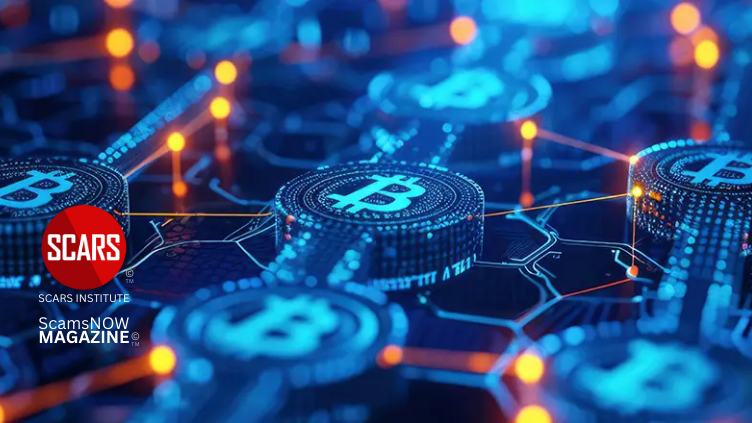
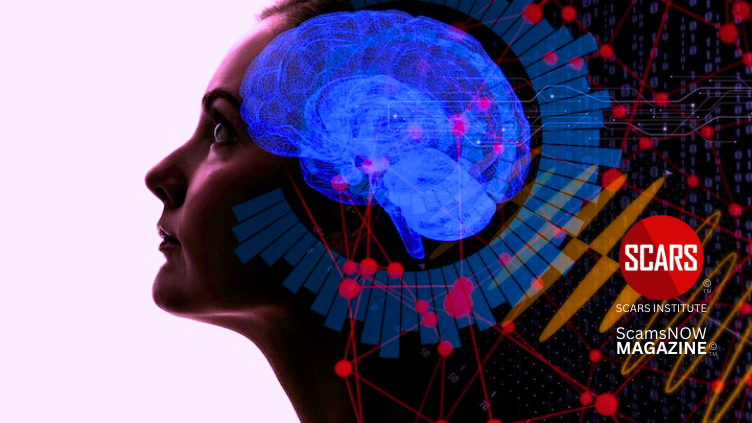
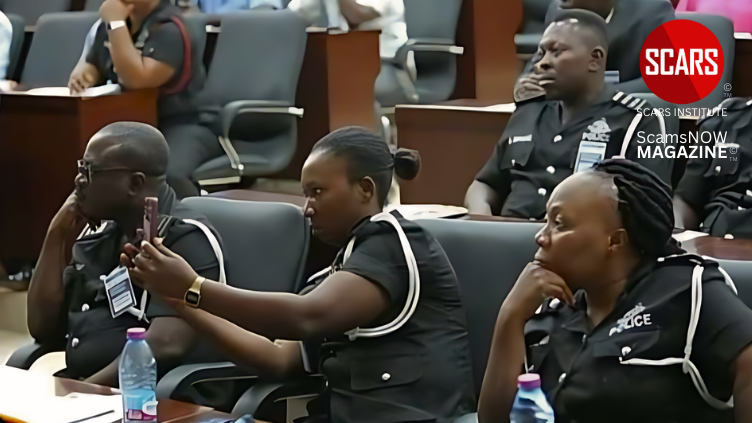






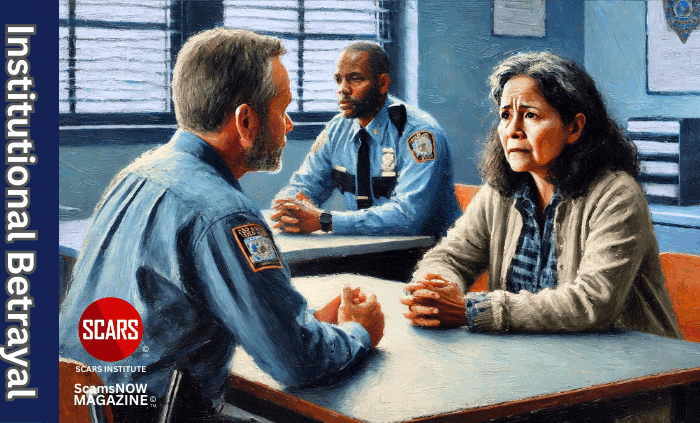



![scars-institute[1]](https://scamsnow.com/wp-content/uploads/2025/04/scars-institute1.png)
![niprc1.png1_-150×1501-1[1]](https://scamsnow.com/wp-content/uploads/2025/04/niprc1.png1_-150x1501-11.webp)

Awesome news